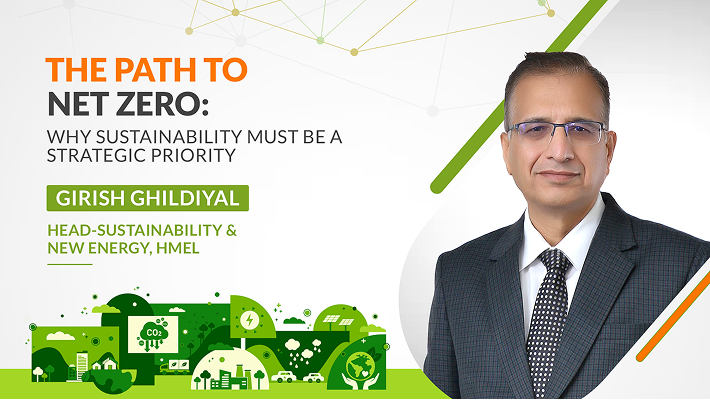In a world grappling with the realities of climate change, the need for transformative action has never been more urgent. Achieving Net Zero—bringing emissions to as close to zero as possible—is no longer a distant aspiration but an imperative for businesses and societies alike. It’s a journey that not only addresses environmental challenges but also reshapes how businesses operate, innovate, and grow.
The national Net Zero target of 2070 represents a bold step toward a sustainable future. Yet, some organizations are taking even bolder strides. We at HMEL, for instance, have pledged to achieve Net Zero by 2040— years ahead of the global timeline of Net Zero carbon emissions. Three strategic pillars guide our sustainability journey: Green Transformation, Digital Transformation, and Business Transformation. Together, these pillars seamlessly integrate sustainability into business strategy, driving both environmental and economic progress.
Sustainability—A Strategic Imperative
Sustainability has evolved far beyond being an ethical obligation—it is now a strategic priority for businesses worldwide. Companies that prioritize sustainability are not just addressing climate risks; they are future-proofing their operations, enhancing their competitiveness, and creating long-term value. Moreover, the economic benefits of sustainability are undeniable: energy efficiency reduces operational costs and green innovation opens up new markets. Businesses that embrace sustainability today are not just protecting the planet—they are positioning themselves as leaders in a rapidly evolving global economy.
Driving Impactful Change Through Sustainability
Sustainability is a journey that requires consistent action, innovation, and collaboration. Businesses across industries are demonstrating how meaningful initiatives can create tangible environmental and economic benefits. From adopting renewable energy to improving operational efficiency, every step matters in reducing Net Zero emissions.
For instance, integrating renewable energy into operations is a key strategy for reducing dependence on fossil fuels and cutting greenhouse gas emissions. Incorporating projects like solar energy systems, can help in reducing carbon emissions for businesses significantly. In FY23-24, HMEL consumed 14,434 MWh of renewable energy, and started implementing 13.8 MW solar rooftop project at the Bathinda, which reduces thousands of metric tons of CO₂ annually.
Another critical area is the development of low-carbon products that align with national and global sustainability goals. Bioethanol production, for example, supports India’s National Biofuel Policy by reducing reliance on traditional fuels and contributing to lower emissions. HMEL’s bioethanol plant plays a pivotal role in enabling this transition.
Technology is also a powerful enabler of sustainable transformation. Businesses are leveraging advanced tools like AI/ML to optimize processes, reduce emissions, and improve efficiency. At HMEL, AI/ML models in the Captive Power Plant ensure real-time emissions control, while cloud computing solution enhances energy efficiency through innovative digital infrastructure.
Operational efficiency remains another cornerstone of impactful sustainability strategies. Energy and fuel efficiency projects can drive significant reductions in emissions and resource consumption. HMEL, for instance, has implemented over 32 projects focused on optimizing power use and enhancing efficiency, with the support of its Environmental Technology team.
These initiatives reflect a broader truth: meaningful change requires a combination of innovative solutions, actionable steps, and accountability. Every initiative, whether big or small, contributes to a larger vision of a cleaner, greener, and more resilient future.
The Road Ahead: A Call for Collective Action
By prioritizing sustainability as a strategic priority, organizations can secure their future while contributing to a healthier planet. For HMEL, the journey to Net Zero is not just a goal—it’s a promise to lead, innovate, and inspire. And for all of us, it’s a reminder that the future of business is green, digital, and transformative. Let’s walk this path together.






 no updates
no updates